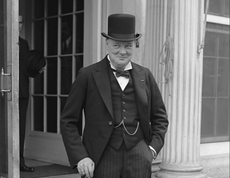Mea Culpa: it only takes a little practice to get it right
Common spelling confusions and filler phrases in this week’s Independent


Yes, I know it’s stupid, but there are two ways of spelling it in British English: “practice” as a noun and “practise” as a verb. In the US, life is made simpler by spelling them both “practice” and no one seems to get hurt. However, until The Independent takes a collective decision, as a website with a global audience, to adopt the American spelling, we should stick with the British convention.
It may seem pointless and a waste of brain-power urgently needed for other tasks, but there is a reason to care. Conventions such as this are markers of quality. As long as there are a lot of readers who are sensitive to the difference – and thanks to Brian Chapman, who wrote to point out several examples last week – it is worth us getting it right. And, as long as we know the difference between a noun and a verb, it isn’t hard.
Hold your breath: Chapman also noted a “baited breath” last week. Again it shouldn’t matter, but it does. The convention is that “bate”, to mean hold back (as in “abate”), and “bait”, to mean entice or annoy, are spelled differently. If we spell it wrongly, it undermines some readers’ confidence that we know what we are talking about. Even if most readers don’t care, some do; we lose nothing and gain a little by getting it right. Or, as it is a “fossil phrase” – a cliché using an obsolete word – we could avoid it altogether.
Ban or encourage? It is the same with “proscribe” and “prescribe”, as Bernard Theobald pointed out. The difference is a bit more important than those between practice and practise, or between bate and bait, because the two words mean nearly the opposite. Proscribe means ban, whereas prescribe means recommend. It is usually clear from the context which we mean, but we shouldn’t make the reader stop to try to work it out.
Stop and rephrase: “In terms of” is one of those filler phrases that ought to prompt any editor to reach for the mouse and the delete button. On Tuesday we reported the results of a study comparing a group of people who enjoy problem-solving with one of people who didn’t. Researchers “looked at the daily differences in physical activity between the [two] groups, measured in terms of instances of gross motor activity – activity that involves moving arms and legs, like walking, dancing, exercising, etc”.
Here “in terms of” flags up a whole train of redundant words. “Instances of gross motor activity”, indeed. Nor did we need the clutter of “etc” at the end of what was a list of examples which by implication (“like”) was illustrative rather than complete. (Strictly, “like” should be a “such as”, because we are not talking about activities “like” walking, we are talking about walking, but that may be pedantry too far.) Here is what we could have said: “... measured by activity that involves moving arms and legs, such as walking, dancing or exercising”.
“In terms of” is like “in order to”, “in relation to” and “in respect of”: they all say “stop and rephrase”.








Join our commenting forum
Join thought-provoking conversations, follow other Independent readers and see their replies